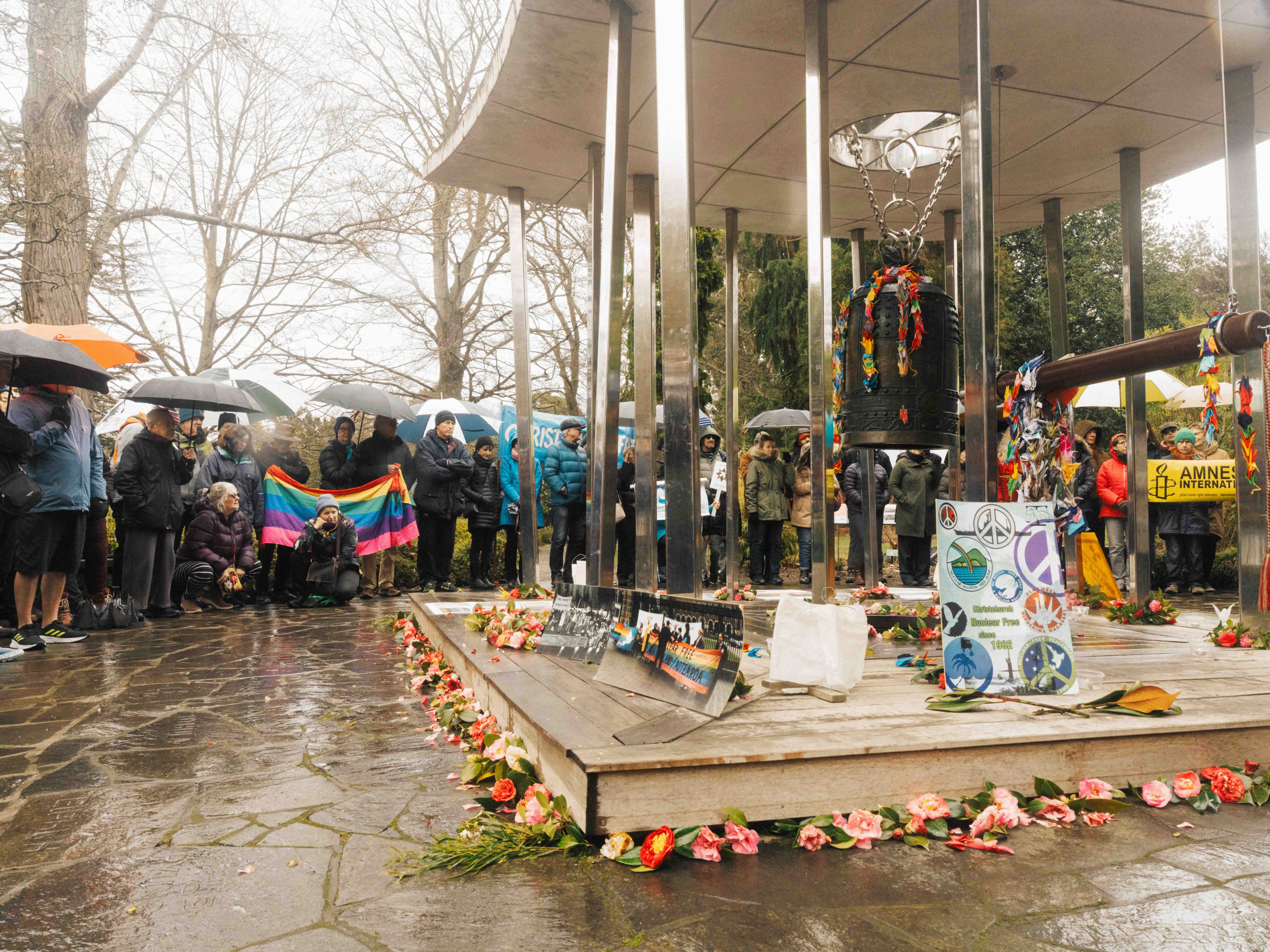
80 Years Since Hiroshima and Nagasaki
On 6 August 1945, the United States (US) dropped the first nuclear weapon ever used in warfare on the Japanese city of Hiroshima. Three days later, on 9 August, a second bomb was dropped on Nagasaki. The devastation in both cities was immense. Over 200,000 people initially died from the atomic bombings, and by the end of 1945 a further 200,000 had succumbed to injury and radiation poisoning. The long-term effects on hibakusha (survivors) and their descendants remain profoundly traumatic and continue to this day. In 2024, the Nobel Peace Prize was awarded to the Japanese hibakusha group Nihon Hidankyo (Japan Confederation of Atomic and Hydrogen Bomb Sufferers Organisations), recognising their decades of advocacy for nuclear disarmament.
Their message has never been more urgent. Last year, the nine nuclear-armed states—the US, Russia, China, the United Kingdom, France, India, Pakistan, North Korea, and Israel—increased spending on their arsenals by 11%, pouring a record US$100.2 billion into nuclear weapons—fuelling global instability. In January 2025, the Bulletin of the Atomic Scientists moved the Doomsday Clock to 89 seconds to midnight—its closest point ever—citing an unrelenting nuclear risk and the erosion of global arms control agreements.
There is a common perception that nuclear weapons are a thing of the past—but the numbers remain deeply alarming. Together, the nine nuclear-armed states possess over 12,200 nuclear warheads, with the US and Russia alone holding 90% of the total. A further six countries—Belarus, Belgium, Germany, Italy, the Netherlands, and Turkey—host nuclear weapons on their territories. Today, approximately 3,900 warheads are deployed, with around 2,000 on high alert, ready to launch within minutes. As Nihon Hidankyo co-chair Terumi Tanaka warned at the Nobel ceremony: “Any one of you could become either a victim or a perpetrator, at any time.”
Recent events have only underscored this warning. The June 2025 conflict between Israel and Iran exposed the failure of nuclear deterrence thinking and set a dangerous precedent. Iran, which does not possess nuclear weapons, was attacked by two nuclear-armed states—the US and Israel—seeking to prevent it from acquiring the very weapons they themselves hold. This crisis reveals a deeper truth: nuclear weapons do not guarantee security. Iran now sees that pursuing them offers no real protection, while Israel’s nuclear arsenal failed to deter retaliatory strikes from Iran. Deterrence breeds mistrust, escalation, and pre-emptive violence. The result is a cycle of fear that brings the world closer to catastrophe—not peace. Nuclear weapons don’t keep us safe—they keep us trapped.
In recent days, tensions between the US and Russia have also worsened. Following an online exchange with former Russian President Dmitry Medvedev, US President Donald Trump ordered the positioning of nuclear-armed submarines closer to Russia. This kind of brinkmanship is a stark illustration of the fallacy that some states can be “trusted” with nuclear weapons while others are deemed too “irrational” to possess them. These actions reflect the increasingly reckless nature of nuclear posturing in global politics—and the urgent need for renewed leadership on disarmament.
New Zealand has long been a global leader in nuclear disarmament. Our 1987 nuclear-free legislation was historic, and Aotearoa was among the first to ratify the 2017 Treaty on the Prohibition of Nuclear Weapons (TPNW), which now has 73 states parties. But that proud legacy is at risk of being diluted.
In Budget 2025, the New Zealand Government halved the Disarmament Education United Nations Implementation Fund with the stated intention of completely “disestablishing” it from 2026. This is a fund that has supported community groups and educators for over two decades. With a modest annual budget of just $200,000, it has helped ensure future generations understand and uphold our nuclear-free identity. At a time of rising nuclear risks, its removal sends the wrong signal: that New Zealand is stepping back from values-based leadership on nuclear disarmament just when the world needs it most.
The 80th anniversary of the atomic bombings of Hiroshima and Nagasaki this year is not only a moment of reflection—it is a call to action. It is a chance to honour the survivors, and to remind New Zealand’s leaders that disarmament is not just history, but a pressing national and global responsibility to ensure no one ever endures what the hibakusha did on those horrific days 80 years ago.
By Dr Marcus Coll
Research Fellow, Disarmament and Security Centre